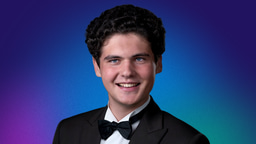Molecular analysis of the protocadherin HNCM1: a novel therapeutic for head and neck cancers
Head and neck cancers greatly affect patients’ quality of life, as it involves organs responsible for ingestion of foods, breathing, and communication. Furthermore, the current conventional methods of standard cytotoxic therapies are disruptive regardless of the cells’ neoplastic status, thus making the development of a less toxic targeted therapy important for an improved quality of life. Cell-surface proteins are known for their easily-accessible localization and the signalling pathways they regulate that many cancer cells modify. However, the poor solubility of this class of proteins makes them amongst the hardest to study in cell biology, despite their clinical potential. The recent advances in proteomics technologies enabled the discovery of many previously unidentified cell surface receptors—a common destination for drug targets—for detailed biological interrogation or therapeutic application. The HNCM1 surface protein has previously demonstrated high selectivity for head and neck cancer models and tissues. My work during the first summer involved the molecular analysis of HNCM1 as a novel therapeutic for head and neck cancers.
The experience was certainly eye-opening, as it provided me with a perspective as an independent researcher in biology. Unlike the laboratory sessions for an undergraduate coursework, my daily timetable was extremely more flexible. I was able to decide when I wish to start and end my day, and I could compensate for the missing data in case the experiment does not go well. I could even take days off if the cells have not grown enough! However, due to the nature of molecular biology research, it was extremely difficult to afford a mistake during the six-week period. A particular experiment spans from three days to a couple of weeks, and if the cells were not abundant enough for experiments, the wait for results becomes even longer. Most of my six weeks were spent on learning the new techniques and refining my laboratory skills, and I feel the need to continue practicing the skills throughout the current school year to minimize the time investment on unnecessary details.
For my following summer term, I hope to produce reproducible results that would reaffirm the importance of HNCM1 in head and neck cancers. I also plan to do a thorough literature review to suggest any future directions and other implications of HNCM1.





Please sign in
If you are a registered user on Laidlaw Scholars Network, please sign in